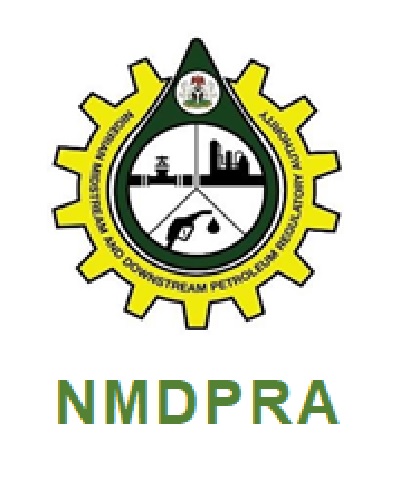The Nigerian Midstream and Downstream Petroleum Regulatory Authority (NMDPRA) has expressed deep concerns over the inadequate coverage of the nation’s gas pipeline network, urging an immediate reassessment of the situation due to its troubling implications for energy security.
Executive Director of the Midstream and Downstream Gas Infrastructure Fund (MDGIF) at NMDPRA, Mr. Oluwole Adama, disclosed this at the OTL Africa Summit Week held in Lagos last week.
Adama further lamented that the current gas pipeline network covers less than 10 percent of what is required to meet national demand.
He, however, pointed out that this huge deficit underscores the urgency for accelerated gas infrastructure development. The MDGIF boss emphasised that a comprehensive and efficient gas network is essential for a sustainable energy transition, urging the private sector to take bold steps to advance gas infrastructure and solidify Nigeria’s energy future.
Adama further encouraged the private sector to ramp up investments in Nigeria’s gas sector, highlighting its potential as a key driver for the nation’s energy needs. “Our gas infrastructure will remain crucial for at least 20 to 30 years in meeting Nigeria’s energy needs,” Adama stated, calling on stakeholders to invest more and lead the expansion process. He recommended the critical need for continued government incentives to draw investments into gas processing, transportation, storage, and distribution.
The recommendation is riding on the back of the progress made by the recent disbursement of N122 billion targeted at bolstering Nigeria’s gas infrastructure. He noted that sustained incentives from the government would be instrumental in fostering a robust environment for private-sector investment in critical infrastructure for Compressed Natural Gas (CNG), Liquefied Petroleum Gas (LPG), and overall gas sector improvements. “The injection of funds is only a step; consistent policy support and incentives will pave the way for increased private investment, enhancing our domestic gas value chain and promoting Nigeria’s economic growth,” he stated.
The MDGIF ED highlighted the importance of a comprehensive approach that integrates policy, infrastructure, and technology investments to fully realize Nigeria’s gas potential. “Nigeria is sitting on gas, and in line with the global energy order of cleaner fuels, we must position our gas as the energy transition fuel.” He pointed out that the country, endowed with more gas than crude oil, needs to leverage this resource effectively.
Highlighting the vision of the MDGIF, he stated that the Fund is focused on financing projects related to Liquefied Natural Gas (LNG), CNG, LPG processing plants, gas transportation and distribution, bulk storage and terminals, and capturing gas flares in alignment with the federal government’s net-zero carbon commitment. He noted that the key goal of the Fund is to enhance local utilisation of gas, particularly at the retail level, targeting widespread end users through initiatives like mother-and-daughter stations.
According to him, projects to be funded must align with Nigeria’s National Gas Expansion Program (NGEP), energy security, and the strategic goals for gas utilization. Adama added that the projects must possess economic value, be commercially and technically viable, and align with Sustainable Development Goals (SDGs) and Environmental, Social, and Governance (ESG) standards. “We focus on promoting and supporting viable projects while leaving the execution to project owners to drive gas production and utilization. We have already announced six project promoters who met our funding criteria, ensuring that these projects are positioned to boost the domestic gas market and advance our energy transition objectives,” he explained.
He elaborated that the MDGIF is primarily an enabling body, whose role is not to initiate projects but to provide the financial and strategic backing needed to encourage private-sector investment and optimize Nigeria’s gas resources. On the MDGIF’s recent disbursement of N122 billion, he said the intervention aims to close the infrastructure gap across Nigeria.
“This investment will be supported by a 1.5 percent levy on wholesale petroleum product prices and is expected to generate income from equity investments made by MDGIF project partners, as well as penalties from gas flaring across oil fields. Our primary objective is to ramp up the use of gas through various projects and attract investors by alleviating their burden from commercial bank interest rates. The MDGIF is also working to secure multilateral and bilateral funding for gas infrastructure development. The organisation prides itself on its strong corporate governance, which is crucial for attracting both foreign and local partnerships.”
“We have received considerable encouragement and commendation for our efforts to enhance infrastructure in the gas sector. Our processes are guided by transparency, utilizing top consultants for due diligence to ensure funds are disbursed effectively.” The MDGIF has announced six project promoters, as the fund does not initiate projects but promotes existing ones for execution. “Among the key projects is a 5,000 MT butane storage facility, expected to support 13,200 MT of NLNG, set for completion by the end of the year. Another significant project by one of the beneficiaries of the recent disbursement is targeting the establishment of 20 mobile CNG refueling stations, which will help reduce dependency on traditional fuels as more partners convert their vehicles to CNG.”


